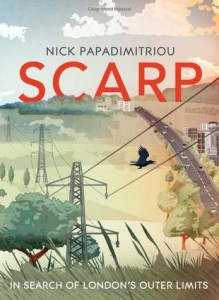Dear Non-SF reader,
Most of what I’ve written up to now can be categorised as science fiction (the exceptions being my short story collection, Spring Tide, and I think also my novel Tomorrow) and most of my readers (or so I would guess) are readers of SF. I’m very grateful to the SF readers who do read my books, and to the open-minded non-SF readers who give them a go and like them, but it frustrates the hell out of me that 90% of the reading public will be put off them by the SF label they carry.
Why don’t you read SF books? Perhaps you anticipate gee-whiz technology and escapist fantasy: strong on phallic machines and enormous explosions, and weak on character, relevance and emotional subtlety. Perhaps you anticipate tedious two-dimensional people with weird names, huffing and blowing about imaginary and implausible threats: ‘We must capture the nine timestones of Xorg from the Splergs, or they will disrupt the flow of the fourth dimension, and the universe itself will die.’
To be perfectly honest, there are SF books out there that would probably confirm your expectations. Undoubtedly the conventions of the genre offer lavish opportunities for sheer escapism, and a kind of techno-porn. But what I want you to know is that those same conventions are also powerful tools for writing and thinking about human life and about the world we actually inhabit.
Listen, if you are a fiction reader at all, you must already be okay with the idea that sometimes making things up is helpful, yes? All fiction involves made-up characters and/or made-up situations. And this, don’t you agree, allows both writer and reader to gain imaginative access to aspects of life that are beyond their own direct experience, or to explore aspects of life that they are familiar with from a new and unexpected perspective? Well, science fiction also involves made-up characters and made-up situations, and adds just one more made-up thing. It makes up worlds. If making up people and situations is alright, how can making up worlds suddenly be beyond the pale?
Actually making up worlds greatly extends the possibilities of fiction, by expanding the range of situations that characters can be asked to engage with and deal with. The made-up world can be used to explore developments in present-day society by extending them into the future, or to externalise the inner demons with which we all struggle, or to estrange us from everyday experience, showing us something that seems utterly different at first from the world we inhabit, only for us to recognise it as something we already know very well but have grown so accustomed to that we’ve stopped seing it. (For an example of the latter technique, see, for instance, Miéville’s The City and The City, which I discussed here, perhaps not strictly an SF book, but near enough to make the point).
The fact that SF provides useful tools for these purposes, is illustrated by frequency with which these tools are taken up by non-SF writers. Orwell’s 1984, for instance, probably one of the most well-known books of the 20th Century, is not normally seen as an SF book, but it really is one. In it Orwell warned about totalitarian tendencies he saw in the present by extrapolating forward to an imagined future in which they had become more obvious and pronounced. (I can’t think of any book that has done better at showing how power turns words into the opposite of what they used to mean, and switches what is defined as good and bad to meet the exigencies of the moment).
Or look at the way that Kazuo Ishiguro (I wrote about him here) invented a society in which clones were bred to provide transplants, in his novel Never Let Me Go. In this case, the SF idea is used more for metaphorical purposes and for purposes of estrangement (and when you think about it, what is a good metaphor but a way of shedding new light on a thing by comparing it with something different and unexpected, and so making it a little bit strange?) The people in the book attend school, get sent off to a place where they get to live in shared lodgings and write essays, and then begin the slow process of dying, bit by bit, as their bodies are harvested for organs. It all feels pretty much like the life of anyone who starts out with hopes of achieving something individual and personal in their lives and ends up giving all their talents to the service of some impersonal organisational machine.
Or, here’s another of my favourite ‘non-SF’ writers, and one of the truly great writers of the 20th century: Doris Lessing. She’s best known for the Golden Notebook and the Martha Quest series, but she’s been using SF tools throughout her career, from Briefing for a Descent into Hell (a book that was a complete revelation to me when I first read it), to Memoirs of a Survivor, through Shikasta and the rest of her Canopus series of novels, and onwards to books like Mara and Dan. Some of these books use SF tools to explore the way society is going, others use them to explore more visionary and metaphysical ideas, some use them for both.
I could go on. I could mention, for example, a book group favourite like Audrey Niffenegger’s Time Traveller’s Wife, which uses the SF notion of time travel (and some good old SF hocus-pocus about genes) to explore the dynamic and temporal nature of a human relationship, by presenting a couple who go through the events of their relationship in two different orders. I could also go on about specifically SF writers, who have written great books that everyone should know about. (See, to give just one example, my review here of The Space Merchants, the brilliant capitalist dystopia by Pohl & Kornbluth that ought to be up there with 1984 and Brave New World. Or see my recent comments on Ken MacLeod’s Intrusion.) My point is this, though. Yes, do judge a book by its depth, its breadth, its relevance to your life, its originality, its execution, but please don’t dismiss it just because of the genre label it happens to be given by the publishing industry.
For myself, yes, I make stuff up, like all fiction writers do, but I do it to help me do the best job I can of writing about the experience of real people, and the dynamics of real societies, and the mysteries of the real universe in which we live.


